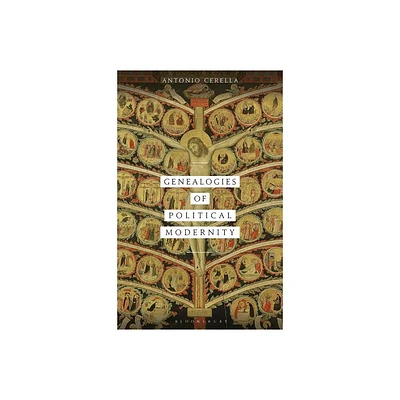Home
Sibling Action: The Genealogical Structure of Modernity
Loading Inventory...
Barnes and Noble
Sibling Action: The Genealogical Structure of Modernity
Current price: $75.00


Barnes and Noble
Sibling Action: The Genealogical Structure of Modernity
Current price: $75.00
Loading Inventory...
Size: Hardcover
*Product Information may vary - to confirm product availability, pricing, and additional information please contact Barnes and Noble
The sibling stands out as a ubiquitous—yet unacknowledged—conceptual touchstone across the European long nineteenth century. Beginning in the late eighteenth century, Europeans embarked on a new way of classifying the world, devising genealogies that determined degrees of relatedness by tracing heritage through common ancestry. This methodology organized historical systems into family trees in a wide array of new disciplines, transforming into siblings the closest contemporaneous terms on trees of languages, religions, races, nations, species, or individuals. In literature, a sudden proliferation of siblings—often incestuously inclined—negotiated this confluence of knowledge and identity. In all genealogical systems the sibling term, not quite same and not quite other, serves as an active fault line, necessary for and yet continuously destabilizing definition and classification.
In her provocative book, Stefani Engelstein argues that this pervasive relational paradigm shaped the modern subject, life sciences, human sciences, and collective identities such as race, religion, and gender. The insecurity inherent to the sibling structure renders the systems it underwrites fluid. It therefore offers dynamic potential, but also provokes counterreactions such as isolationist theories of subjectivity, the political exclusion of sisters from fraternal equality, the tyranny of intertwined economic and kinship theories, conflicts over natural kinds and evolutionary speciation, and invidious anthropological and philological classifications of Islam and Judaism. Integrating close readings across the disciplines with panoramic intellectual history and arresting literary interpretations,
Sibling Action
presents a compelling new understanding of systems of knowledge and provides the foundation for less confrontational formulations of belonging, identity, and agency.
In her provocative book, Stefani Engelstein argues that this pervasive relational paradigm shaped the modern subject, life sciences, human sciences, and collective identities such as race, religion, and gender. The insecurity inherent to the sibling structure renders the systems it underwrites fluid. It therefore offers dynamic potential, but also provokes counterreactions such as isolationist theories of subjectivity, the political exclusion of sisters from fraternal equality, the tyranny of intertwined economic and kinship theories, conflicts over natural kinds and evolutionary speciation, and invidious anthropological and philological classifications of Islam and Judaism. Integrating close readings across the disciplines with panoramic intellectual history and arresting literary interpretations,
Sibling Action
presents a compelling new understanding of systems of knowledge and provides the foundation for less confrontational formulations of belonging, identity, and agency.


















